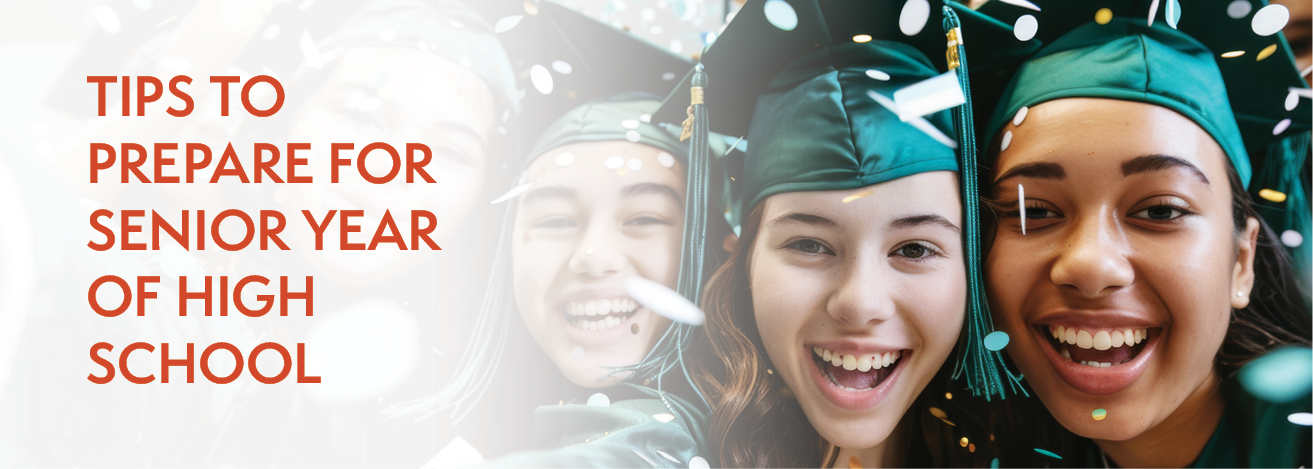
Are you going into your final year of high school? The Washington Student Achievement Council (WSAC) has tips and resources to help you prepare for key senior responsibilities, such as applying to colleges or job training, and getting financial aid.
Tip #1: Consider your options after high school
Now is the time to think about what you want to do after high school. Consider these options:
- Four-year college
- Two-year college
- Apprenticeship (learn on the job)
- Technical school
- Trade school
- Military
- Full-time employment
Why should you get more education beyond high school? People who get career training or have a college degree:
- Live longer, healthier lives.
- Are more likely to stay employed.
- Are more likely to enjoy their work.
- Can change careers more easily.
- Earn around $1 million more over their career than high school graduates.
Start weighing options so you can narrow down your choices in the coming months. Learn more and plan your future on the WSAC website.
Tip #2: Narrow down your list of colleges or training programs
Find a list of colleges or training programs that fit your career interests, then narrow it down with these research tips:
- Visit campuses or take virtual tours.
- Speak to college counselors about your interests and goals.
- Speak to your high school counselor.
- Ask your family for advice.
- Research online articles.
- Look for testimonials from graduates.
- Compare affordability between schools, including cost of living if you decide to live on campus.
- Consider campus sizes.
- Find out where you can participate in extracurricular activities you like.
Tip #3: Learn about different types of financial aid
Do you think you can't afford education after high school? Think again!
There are several types of financial aid, including some that don't need to be paid back. Understand these terms:
- Federal financial aid: The Federal Student Aid office provides student financial assistance in many forms. Students complete a FAFSA to apply for federal financial aid.
- State financial aid: States, including Washington, provide forms of financial aid typically designed to be used at participating institutions within the state.
- Scholarship: Financial assistance provided by state aid, businesses, organizations, or colleges for community service, good grades, athletic ability, or a variety of other qualities or activities. Scholarships do not need to be paid back under most circumstances.
- Grant: Need-based financial assistance provided by federal aid, state aid, or private institutions. Grants do not need to be paid back under most circumstances.
- Student loan: Certain types of loans provided by the federal government, states, or private banks. Loans need to be paid back, but repayment doesn’t start until after graduation.
You can estimate your award with the financial aid calculator. Remember, the only way to know for sure what you qualify for is to apply for financial aid.
Tip #4: Make a calendar for important dates
Whether it's a wall calendar or in your phone, set a series of reminders about important dates, which include but are not limited to these deadlines:
- Financial aid: FAFSA and WASFA usually open October 1. The applications opened late last year after receiving major updates. Next year’s applications are tentatively set to open in October.
- School applications: Not all school’s application deadlines are the same! Allow plenty of time to visit campuses, talk to counselors, complete essays, obtain letters of recommendation, and fulfill other requirements.
- Decision time: Know when you must make a choice between the schools where you were admitted. Make plenty of time to compare offers.
- Your school’s deadlines: Once you are committed to a school or program, add their important dates to your calendar. You will need to know when you need to sign up for orientation and classes, and make decisions about financial aid offers, housing, and more.
Don’t wait until the last minute! It is important to know these dates so you can plan and allow plenty of time to do things right. Stalling can lead to rushed essays, missed letters of recommendation, or even missing deadlines altogether.
Tip #5: Sign up for OtterBot
If you don’t already get texts from OtterBot, sign up now to receive texts with important info, reminders, resources, and tips.
OtterBot is geared toward students enrolled in the College Bound program, but its content is useful to all Washington high school students and their parents or guardians. Seniors receive texts two to three times a week.
OtterBot sends texts with the following info:
- All about FAFSA and WASFA.
- Applying for college.
- Applying for scholarships.
- Understanding financial aid award letters.
- Making your college decision.
- Transitioning to college.
- What to expect in your first term at college.
- College resources you need to use.
Students: Text "Hi OtterBot" to 360-928-7281.
Parents: Text "Hi OtterBot" to 360-634-0354.
Learn more on WSAC’s OtterBot page!
If you are a College Bound Commitment student, use this form to keep your contact info up to date.
Tip #6: Earn college or tech school credits while you’re still in high school
Dual credit programs allow you to earn credits during high school that can be transferred to a college or tech school you attend later.
Dual credit opportunities include:
- Exam-based programs, such as Advanced Placement, International Baccalaureate, and Cambridge International.
- Course-based programs, such as Running Start and College in the High School.
- CTE Dual Credit, and more!
Talk to your counselor to ensure the credits you’re earning will transfer to your school of choice.
 Skip to main content
Skip to main content


